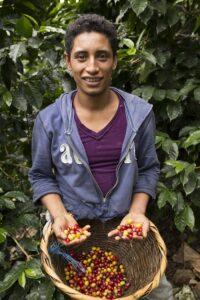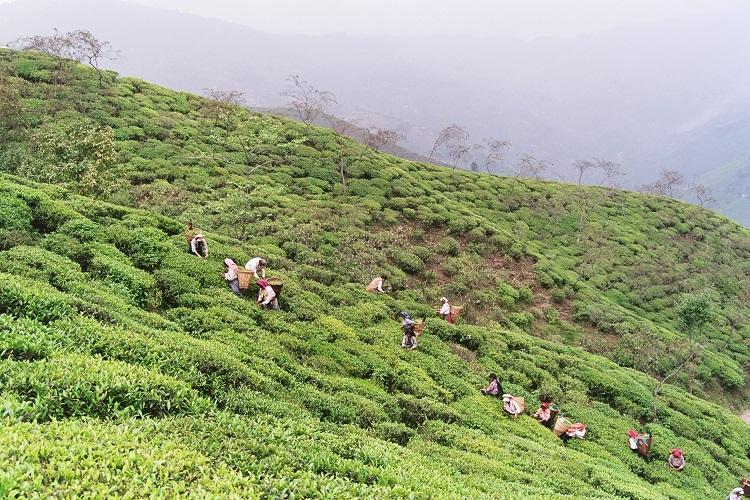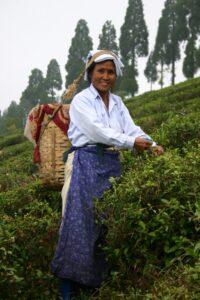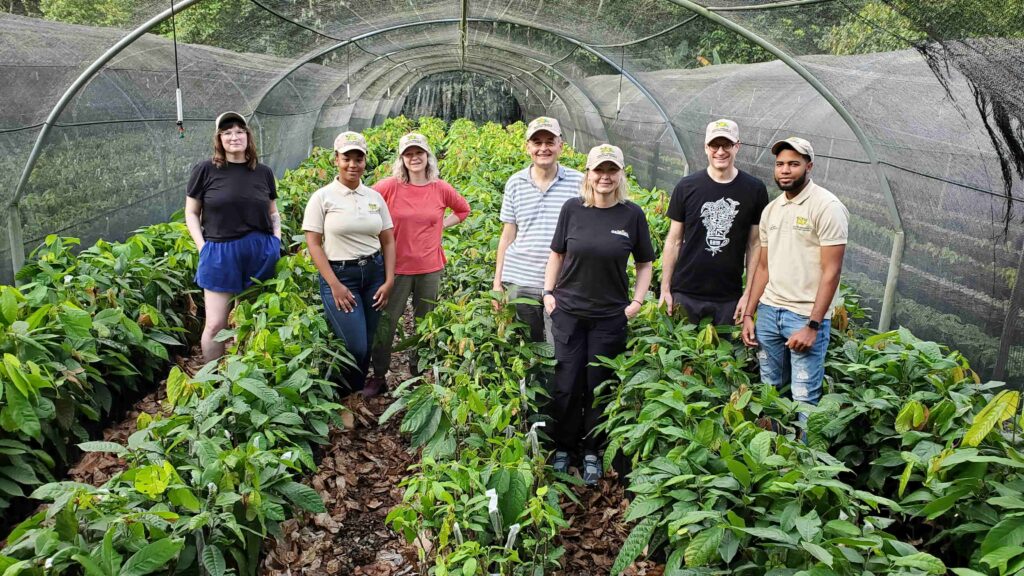No doubt you have already seen or heard about Equal Exchange’s teas and coffees. But perhaps you still wonder how they differ from other fair trade brands of coffees and teas you might already be drinking on a regular basis. What makes our sister co-op Equal Exchange’s coffee and tea stand out?

Aside from their exquisite flavour, which we will speak about further, Equal Exchange’s organic teas and coffees adhere to the highest growing and trading standards, while following one of the most stringent fair trade standards, the SPP (Small Producers’ Symbol).
Equal Exchange has been and continues to be a leader in fair trade standards, challenging large corporations that seek to dominate our food system, focused on profit and the lowest common denominators of taste, quality and trading standards.
Equal Exchange is working to forge a different path for small-scale farmers everywhere. As an alternative trade organization (ATO) they partner with small farmer organizations around the world to change existing power structures and build economic solidarity between farmers and consumers.
Democratically Organized Small-scale Farmers
Equal Exchange is categorical: fair trade means small-scale farmers. They work exclusively with democratically organized small-scale farmers, building long-term partnerships. Equal Exchange works hand in hand with these farmers and their organizations. Their goal is to strengthen the autonomy of small farmer organizations and to encourage entrepreneurship, helping farmer-producers gain control and participate in their own business decisions. As Tom Hanlon-Wilde of Equal Exchange says, “Equal Exchange is organized as a worker-owned co-operative to reflect the democracy and transparency of the farmer organizations that grow the coffee and tea.”

Women plucking tea, Potong, India
Above and Beyond
Equal Exchange’s relationship with farmer-producers exceeds other fair trade seals through various means, such as
- Paying above-market prices directly to the small-scale farmers, so they can genuinely support their families;
- Offering pre-harvest financing, so farmers don’t have to wait all the way to harvest to have a cash flow;
- Training new groups learning how to wade through the red tape of exportation;
- Collaborating with the farm co-ops to develop crop diversification;
- In tandem with the co-ops, developing specialized training that aims to increase gender equality.
Fair Trade – or Not?
In today’s market, currently flooded with labels, fair trade can sometimes seem like more of a marketing tool than an alternative supply chain. In fact, looking at today’s tea industry which was shaped under British colonialism, the vast majority of tea sold under fair trade labels is still produced on plantations where one owner can still reap all the benefits off the backs of the farm workers he employs. Indeed, as the plantation workers do not own the homes or land they live and work on, and wages are low, they can be caught in a cycle of poverty which is nearly impossible to escape. If they were to leave the plantation, they would be homeless and jobless.

All of that is a far cry from democratically-organized farmers making their own decisions while adhering to fair trade principles. Equal Exchange helped break the centuries-old moulds of colonialism and have helped to open fair trade markets for the tea producers who took control of the land they farm.
Tom Hanlon-Wilde emphasizes the need for farmer-producers to own their land. Without fair trade coffee cooperatives, coffee farmers were also like indentured servants. Violent protests in the 1960s resulted in many farmers reorganizing and freeing themselves from having to work for the local landowner. A decade later, they were able to acquire land. But it wasn’t until the ‘90s that co-ops formed so farmers could obtain the full monetary value of their work and their crops. Fair trade cooperatives made it possible for small farmers to access international markets. The land reforms enabled farmers to compete at market prices, not dependent on northern handouts.
Taste the Difference
The end result for consumers is you know what’s in your cup, and you can enjoy superior coffee and tea. If you have never tried Equal Exchange’s teas and coffee, tasting is believing. Once you try their smooth, sweet coffee it’s hard to accept a lesser product. Their tea, made from just one or two ingredients, is never bitter. Tom Hanlon-Wilde of Equal Exchange confirms, “It’s tea from the farmers that goes into the bag. Nothing else.”
When farmer-producers are properly paid, they flourish in what they know best: agriculture. Equal Exchange facilitates the essential conditions that allow farmers to fully concentrate on the work of farming, rather than just subsisting. The finished products reflect this labour of love in their high quality. As Tom Hanlon-Wilde says, “Good farmers who are well taken care of give good crops. If we take care of farmers, they take care of us.”


